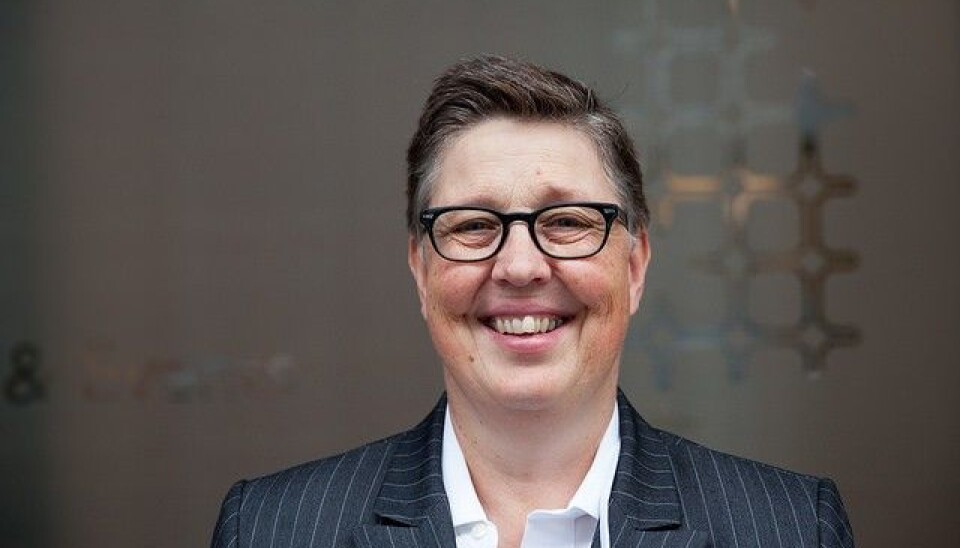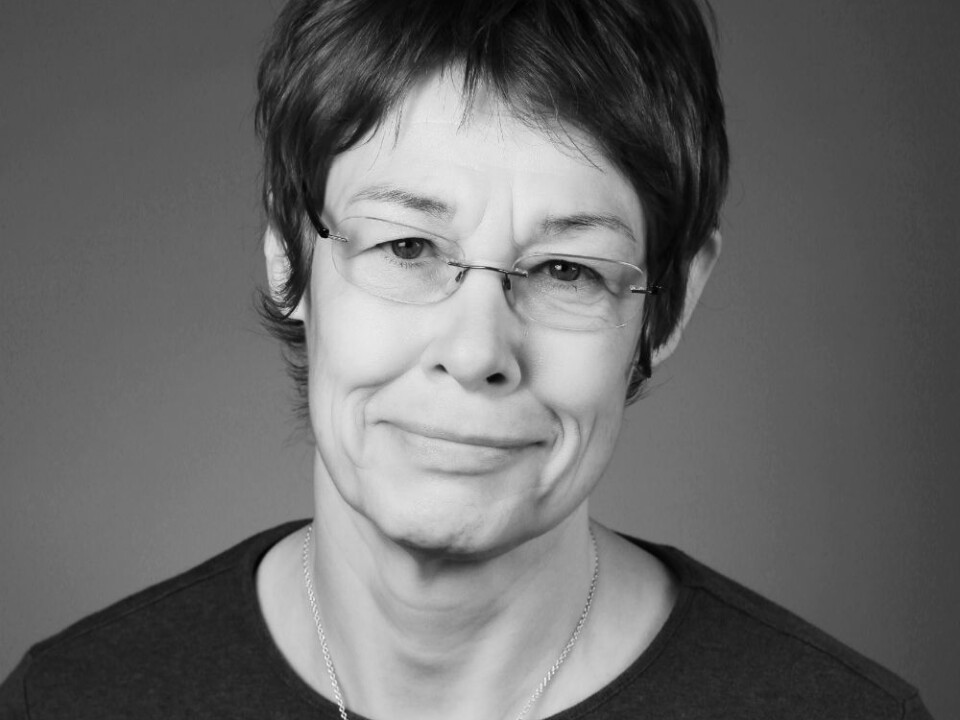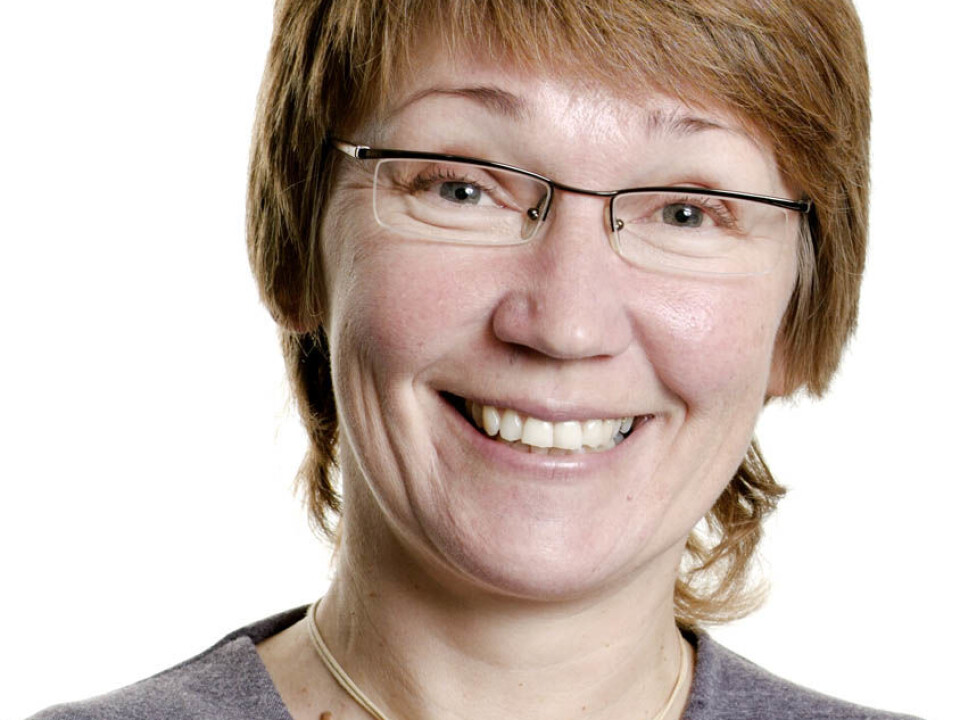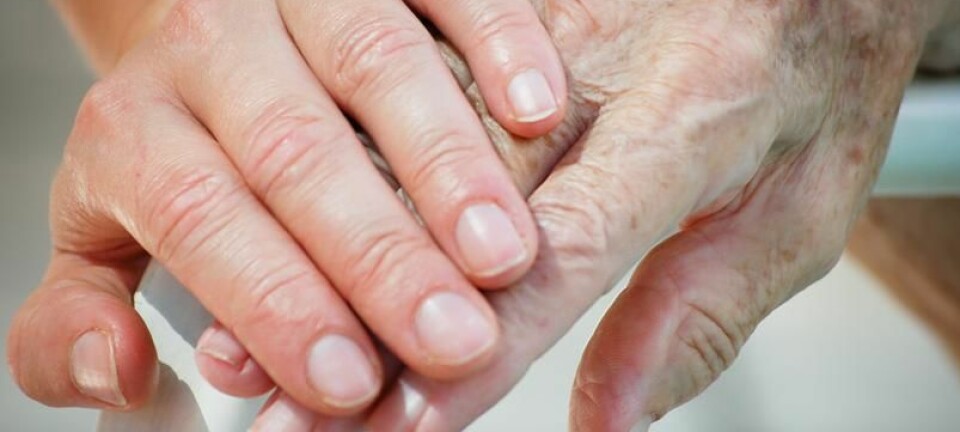
Norwegian equality measures criticised by experts
Norway met criticism from the UN for its lack of efforts on matters of gender equality. There is now a hope that the critique may contribute to the implementation of important measures.

This article was originally published on Kilden - Information and news about gender research in Norway. Read the original article.
On November 7, Norway attended a hearing in the UN Committee on the Elimination of Discrimination against Women. On several issues, the Norwegian Government was criticised for insufficient follow-up on our responsibilities on matters of equality.
The hearing was based on the Government’s report on equality measures from 2016 and several shadow reports, among them reports from the Equality and Anti-Discrimination Ombudsman, the Norwegian Women’s Lobby and twenty-two organisations from civil society.
Civil society was heard

The shadow report from civil society was highly critical to the Government’s contribution, and several of their concerns won sympathy in the UN statement.
“They have clearly listened to civil society, and it is obvious that we represent an important voice into the committee,” says Gro Lindstad.
Lindstad works as managing director at FOKUS – Forum for Women and Development, the organisation that coordinated the work with the shadow report.
In their statement, the UN committee criticised the reduction of the father’s quota, gender neutrality in the legal system, the lack of low-threshold services for victims of sexual harassment and insufficient measures to prevent rape.

According to Lindstad, one of the most important issues that has to be dealt with, which the organisations behind the shadow report also emphasised, is violence against women.
“Already the last time Norway was questioned, it was commented that the section on rape in our legislation was unclear with regard to consent. It was embarrassing in Geneva when we were asked how Norway had followed up on this issue.”
She is also happy to see that the committee calls attention to how Norwegian legislation is becoming increasingly gender neutral.
“We no longer talk about discrimination of women, but of gender discrimination and gender based violence. This tendency has been strengthened due to the merger of the Equality and Anti-Discrimination Act that was passed this summer, but the neutralisation of the language has been a continuous trend.”
#metoo gives momentum

One aspect of the UN Committee’s criticism that has received particular attention in the wake of the #metoo debate, addresses the current problem of enforcing the prohibition against sexual harassment.
According to Anne Hellum, professor of women’s rights, discrimination and equality rights, this is something to which we should pay particular attention.
“The Committee has criticised Norway several times for not having any effective enforcement mechanisms against sexual harassment. Sexual harassment is exempt from enforcement by tribunal and commission, and can only be enforced in the courts.”
According to Hellum, this autumn’s campaign documents the enormous gap between the scope of sexual harassment and the threshold for bringing cases to the courts of law.

“Three cases on sexual harassment have been presented to Norwegian courts in which the injured party was harassed after the prohibition was introduced to the Equality Act in 2002,” Hellum informs.
“The requirement that these cases have to be tried in the courts has been quite a bottleneck, particularly because there is no free legal aid in these cases. Those who want to go to trial must bear the costs themselves, and they risk having to bear the costs of the opposing part if they lose. This is an effective barrier.”
When the new Equality and Anti-Discrimination Act was up for discussion in the Norwegian Storting (Parliament), they passed a motion to assess the introduction of a low-threshold service for the prohibition against sexual harassment. The Government is currently preparing a proposal to let the Anti-Discrimination Tribunal enforce the ban. Hellum is hoping that the statements from the Committee will contribute to a thorough treatment of the motion from the Storting.
“It is a well-known fact that the Storting passes hundreds of motions annually to follow up this and that. The state budget only notes that the Department will get back to the Storting on the matters in question. It can easily come to nothing,” says Hellum.
Protection for female victims of violence
Head of information at The Secretariat of the Shelter Movement, Sara Bondø, was part of the working group responsible for the shadow report. She was also present at the Committee’s hearing in Geneva. Bondø emphasises the Committee’s statements on violence against women.
“There is still a high level of gender based violence against women in Norway. We have not seen any decrease in women who seek protection from the shelters,” says Bondø.
“We have to provide sufficient protection for women who have been exposed to violence.”
She also refers to the Committee’s concern with respect to the rape statistics and the low number of reported rapes.
“The investigation of rape cases is not good enough, it needs improvement. Furthermore, the legal judges need to be educated on gender based violence.”
Bondø wants consent incorporated into the sex legislation and a new plan of action against rape and sexual violence.
“Norwegian law needs to define rape in accordance with international conventions: Sex without consent is rape.”
One of the measures that the Secretariat of the Shelter Movement has requested for a long time, which the Committee has supported, is a more widespread use of reversed personal alarm for the assailants.
“At all times approximately 850 women with children are on the run in Norway as a result of domestic violence. If more people are sentenced to use a reverse personal alarm, perhaps less women and their children will have to be on the run in their own country,” says Bondø.
Requests evaluation
Nina-Merete Kristiansen from Norwegian Nurses Organisation was also part of the working group responsible for the shadow report, and present at the hearing in Geneva as representative from the Confederation of Unions for Professionals (Unio). Like Lindstad, Kristiansen is critical to the ‘gender neutral’ strategy behind the merging of the equality and anti-discrimination legislation.
“At the very least, the government should evaluate the effects of the merging of the Equality and Anti-Discrimination Act and the effects of the changes in the enforcement system. The Equality and Anti-Discrimination Ombudsman is about to be split up, and a new committee will be established in its stead. We do not yet know the consequences of this, and many are afraid it might result in poorer protection.”
The new merged Equality and Anti-Discrimination Act comes into force from 1 January 2018, as does a newly established Anti-Discrimination Tribunal. On their website, the Government states that they are in the ‘process of reorganising the field of equality, in which a new anti-discrimination tribunal will take over the responsibility of law enforcement that is currently under the Equality and Anti-Discrimination Ombudsman (LDO)’.
According to Kristiansen, there are a number of other equality related challenges concerning employment policy.
“There’s a lot to be dealt with. The gender divided labour market and its consequences, equal pay, pension, segments within the labour market that organise the work as part-time, which is very difficult to change.”
Among the things the Government was criticised for in the shadow report from the twenty-two organisations was how they have facilitated for more temporary employment. Minister of Children and Equality Solveig Horne has met this criticism on several occasions by saying that the use of temporary employment has not increased. According to Kristiansen, this is ‘just nonsense’.
“The reason why this hasn’t happened is because of how the labour market has been lately. The Government has facilitated for more use of temporary employment. And even today we know that women are more often exposed to temporary job contracts, which make them more vulnerable to discrimination with respect to pregnancy and parental leave.”
According to a survey from LDO in 2015 fifty-five per cent of female employees and twenty-two per cent of male workers had experienced one or more types of discrimination related to pregnancy and parental leave.
“In the transition phase between temporary and permanent employment we often find that women in fertile age are substituted. There are numerous examples of this, particularly from the health and care sector,” says Kristiansen, who also would like to put focus on the working conditions for organisations dealing with women’s rights.
“The conditions are much poorer than for organisations working with other forms of discrimination, as demonstrated in the report from the Skjeie committee.”
Confusion concerning the obligation to report
Above all, the UN Committee has evaluated whether the right to equality and the protection against gender discrimination is good enough in Norway, says professor of law Hellum.
“All other questions can be traced back to this primary, overriding question.”
According to her, it is particularly unfortunate that the obligation to report has been revoked.
“The Committee recommends that Norway reintroduces the obligation to report, which was revoked when the Storting passed the new legislation.”
In an article in the national newspaper Klassekampen, Solveig Horne commented that the obligation to report has been extended. According to Hellum, this is not accurate.
“There has been a lot of confusion around this issue. A majority of the Storting voted in favour of keeping the obligation to report, but as the new legislation was passed, the statutory provisions concerning the obligation to report was annulled. At the same time, the Storting passed a motion requesting the Government to keep and strengthen the obligation. In my opinion, the way in which this legislation has been handled is scandalous,” she says.
“The whole process was very ambiguous and unreliable, characterised by doublespeak. They pass a law that says one thing and then a motion that says something entirely different.”
According to Hellum, the UN Committee has been exemplary with respect to clarity and precision in their statements.
“This is highly important considering how messy the handling was in the Storting, with all their hazy petitions and the confusion concerning what has been passed and not, and what the Government is obliged to do and not,” she says.
“We were lucky to get a hearing in Geneva, where these issues were cleared up and the Government got recommendations on how to follow up our international responsibilities.”
Women’s right of appeal weakened
Hellum emphasises that in addition to the revocation of the obligation to report, the Committee also states that women’s opportunities for appeal in discrimination cases have been weakened significantly.
“As previously mentioned, there is no free legal aid in discrimination cases in Norway, and the reformed equality act involves a significant staff reduction at the Equality and Anti-Discrimination Ombudsman.”
Approximately ten positions will be moved to the Anti-Discrimination Tribunal, which will handle individual appeals. The Equality and Anti-Discrimination Ombudsman will from now on only provide guidance and counselling to people who feel exposed to discrimination and need assistance in order to make an appeal.
According to Hellum, it is much more laborious to appeal now than it used to be, since a new requirement demands that all appeals must be submitted in writing.
“Not everyone has competence to formulate a written appeal to the Tribunal, and many are dependent on assistance from the Ombudsman. With the staff reduction at the Ombudsman’s office, there’s a great risk that they won’t have sufficient capacity to follow up on individual appeals and give counselling and guidance.”
According to Hellum, the Ombudsman’s office is currently up to its ears with cases related to harassment, not just from people who wish to submit appeals: Many employers who are obliged to prevent and stop harassment are now seeking advice and guidance, particularly now as the #metoo campaign is growing bigger.
“A lot of people are becoming increasingly aware of their rights, and many of them want to have their rights addressed by the Anti-Discrimination Tribunal in Bergen. It’s a new era, and it is extremely important that the Ombudsman’s office is sufficiently equipped to receive appeals and assist employers.”
Dismisses the criticism
State Secretary in the Ministry of Children and Equality Kai-Morten Terning (Progressive Party) disagrees with the UN Committee, professor Hellum and the civil society in their criticism of the Government’s work on gender equality.
On the matter of giving consent a more prominent place in the rape legislation, he says that the Department of Justice submitted such a proposal for hearing in 2013. The consultative bodies were divided, and thus the Department will get back to this matter at a later date.
Neither is it the case that the new legislation is gender neutral, according to Terning, as it is written in the object clause that the law should particularly aim to improve women’s position.
“There are other formulations in the legislation that are especially designed to give women better protection from discrimination than they have today. For instance, the strong protection against discrimination due to pregnancy and parental leave in cases of birth and adoption has been made clearer in today’s equality act.”
Terning confirms that the obligation to report was not extended in the Storting’s resolution on the new equality act, but he says that the Storting has passed a motion in which they ask the Government to strengthen it.
“It hasn’t been possible to follow up on the motion in time to have the new law come into force from 1 January 2018,” he says.
He notes that the Government will present a proposal next year, aiming for the motion – which requires an amendment in the law – to come into force from 2019.
Will be more explicit
With regard to the criticism concerning the division of the Equality and Anti-Discrimination Ombudsman, Terning’s response is that the Ombudsman’s office is not reduced, but that it is going through a process of change involving a transferral of both work responsibilities and finances.
“The Ombudsman will be more explicit in its role as the driving force, and the case handling of appeals will be quicker. We will also have a more efficient protection against discrimination as the new tribunal will be given authority to impose compensation.”
When it comes to questions concerning whether an increase in temporary employment on the labour market will affect women in particular, Terning states that the Government has strengthened the protection against discrimination in cases of pregnancy in the new Equality and Anti-Discrimination Act.
“The fact that the new Anti-Discrimination Tribunal will be able to impose compensation provides much more efficient protection for everyone who is exposed to discrimination, including pregnant employees.”
He further notes that the share of temporary employees is still relatively low in Norway in an international perspective.
With regard to the criticism from the UN Committee concerning the lack of efficient enforcement mechanisms related to sexual harassment, Terning states that the last government didn’t recommend that the Equality and Anti-Discrimination Tribunal should have authority to handle cases concerning sexual harassment either, when it proposed a new anti-discrimination act in 2013.
“The grounds for not providing the tribunal with this authority was out of consideration for legal protection. Sexual harassment cases involve major evidential challenges, and should therefore be handled by the courts of law,” he says.
According to Terning, the request to hand over such authority to the tribunal will be followed up thoroughly, and the Government aims to initiate an enquiry early in 2018.
Translated by: Cathinka Dahl Hambro
































